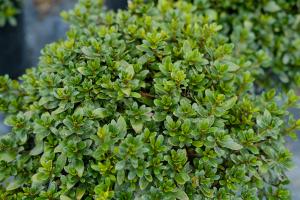Is Rainwater Better for Plants than Tap Water?
When it comes to watering your plants, you might wonder whether rainwater is better than tap water. The truth is, both types of water have their pros and cons, and it ultimately depends on your specific plants and environment.
The Benefits of Rainwater
One of the main advantages of rainwater is that it is completely natural and free of the chemicals that may be present in tap water. Rainwater also contains an ideal pH balance for plants, which helps them absorb nutrients more efficiently. Plus, rainwater is relatively soft, which means it is less likely to cause mineral buildup in the soil over time.
In addition to these benefits, rainwater can help improve soil structure by adding organic matter and breaking up hard soil. This can lead to better drainage, aeration, and overall plant health. Plus, rainwater is often cooler than tap water, which can be especially beneficial for plants during the hot summer months.
The Drawbacks of Rainwater
While rainwater has many benefits, there are also some potential drawbacks. For one, rainwater can be contaminated by pollutants in the air, which can harm your plants. This is especially true if you live in an urban or industrial area. Additionally, rainwater can be erratic and unpredictable, which means your plants may not receive enough water during dry spells, or they may be over-watered during heavy rains.
Another significant drawback of rainwater is that it may not contain the necessary minerals and nutrients that your plants need to thrive. While rainwater is naturally soft, it does not typically have the same levels of calcium, magnesium, and other important nutrients found in tap water. This can lead to nutrient deficiencies in your plants over time.
The Benefits of Tap Water
Tap water has some clear advantages over rainwater, particularly when it comes to consistency and reliability. Unlike rainwater, tap water is always available and can be easily controlled to ensure that your plants get the right amount of water they need. Additionally, tap water often contains necessary minerals and nutrients that plants need to grow and thrive.
Another benefit of using tap water is that it is often treated with chemicals like chlorine, which can help kill harmful bacteria and fungi in the soil. This can be especially beneficial if your plants are prone to diseases or pests.
The Drawbacks of Tap Water
One of the main drawbacks of tap water is that it often contains high levels of minerals like calcium and magnesium, which can build up in the soil over time and cause damage to your plants. This is especially true if you live in an area with hard water. Additionally, tap water may contain other contaminants like chlorine, fluoride, and heavy metals, which can be harmful to your plants.
Another potential drawback of tap water is that it can be expensive, especially if you live in an area where water is scarce or in high demand. This can make it difficult to water your plants regularly, which can lead to nutrient deficiencies and other problems.
The Bottom Line
So, which is better for your plants - rainwater or tap water? The answer ultimately depends on your specific circumstances, including the type of plants you have, how much water they need, and the quality of your local tap water and rainwater. If you have access to clean rainwater, it can be a great choice for your plants, especially if you live in an area with soft water. However, if your local tap water is safe and contains necessary minerals and nutrients, it may be a better choice for your plants. Ultimately, the best way to ensure your plants get the water they need is to monitor them closely and adjust your watering routine accordingly.

 how many times do yo...
how many times do yo... how many planted tre...
how many planted tre... how many pine trees ...
how many pine trees ... how many pecan trees...
how many pecan trees... how many plants comp...
how many plants comp... how many plants can ...
how many plants can ... how many plants and ...
how many plants and ... how many pepper plan...
how many pepper plan...






























